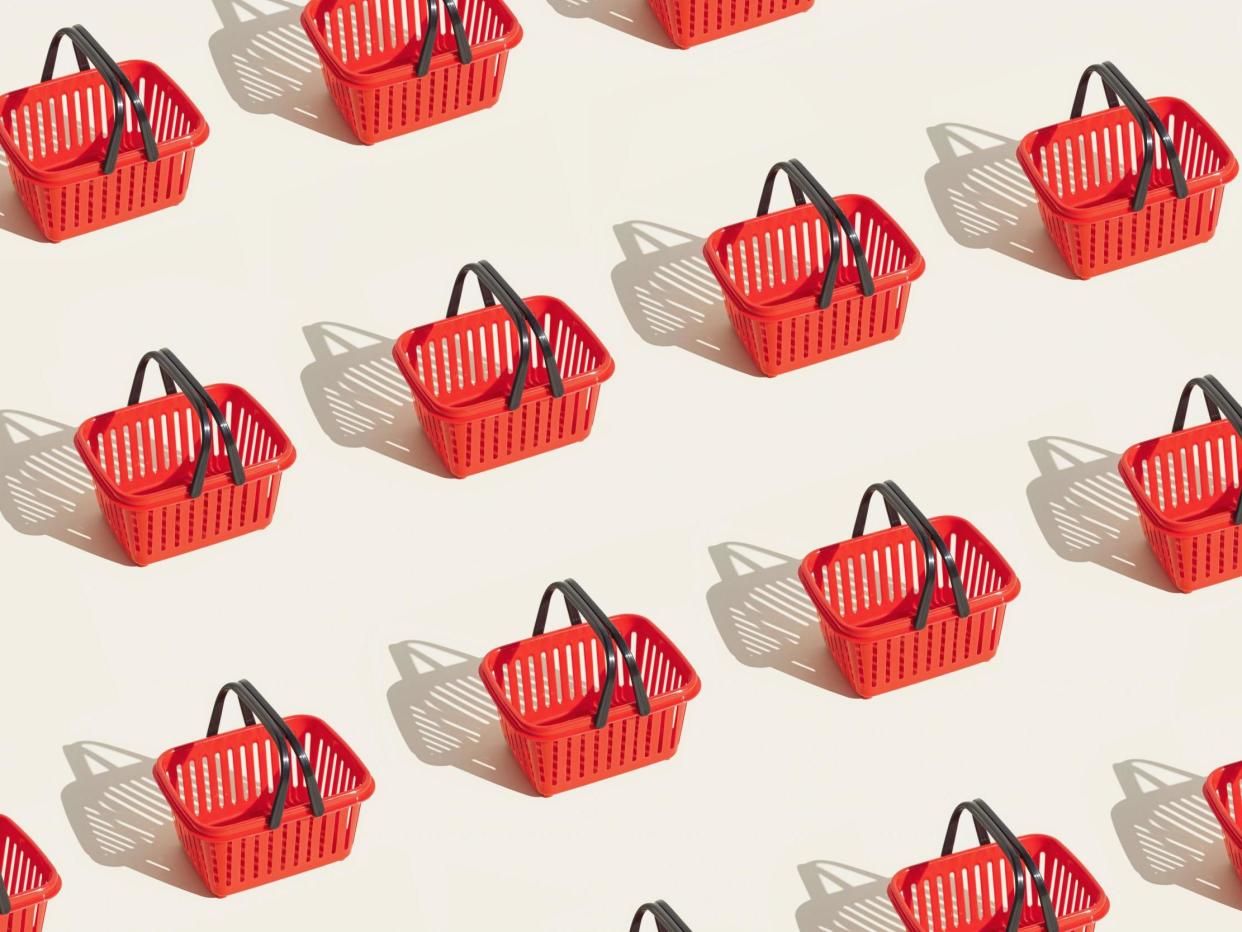Supermarkets should raise 'bag for life' price to 70p, as plastic waste increases, say Greenpeace

Campaigners are calling for higher charges on plastic bags, or even a complete ban, as new research found households are now buying an average of 54 a year.
In the last 12 months, supermarket plastic levels rose above 900,000 tonnes a year, compared with 886,000 in the previous year, with eight supermarkets pumping out 58.3 billion pieces of plastic between them.
This is according to self-reported data from the UK’s 10 biggest retailers, compiled by Greenpeace and the Environmental Investigation Agency (EIA).
This increase in plastic waste from most supermarkets is despite public pledges to cut back.
Seven out of 10 of the UK’s top supermarkets increased their plastic use since last year, and only Waitrose, Tesco and Sainsbury’s achieved marginal reductions.
Waitrose and Morrisons were the best performers in the plastic league table, with Asda and Aldi being the worst offenders.
Iceland dropped from the top spot last year to seventh place this year and Sainsbury’s went from bottom of the 2018 league table to third place this year.
Waitrose scored highly because it had reduced the amount of plastic packaging used, and is looking to scale up trials to offer refill stations in store for products such as coffee, rice and pasta, as well as wine and detergent.
The mixed results are despite all of the UK’s biggest supermarkets having made public commitments and set targets to reduce their plastic packaging footprints.
Among the most ambitious of these pledges is Iceland (100 per cent removal of single-use plastic by 2023), Sainsbury’s (50 per cent plastic reduction by 2025) and Tesco (20 per cent less plastic in own-brand packaging in two years).
In 2018, Asda, Lidl, Iceland, Morrisons and M&S also said they were all on track to achieve reduction targets but, according to the report, Tesco is the only brand to have given suppliers an ultimatum to cut excessive plastic or face products being delisted.
The data, detailed in the Checking Out On Plastics report, was provided to Greenpeace and the EIA by the brands themselves.
All of the major retailers, apart from Ocado, responded to a survey request in May 2019. The survey was also sent to five other retailers with more than 1,000 stores including Bestway, Booker Group (Premier, Londis, Budgens), Costcutter, McColl’s and Spar UK.
The response rate for convenience stores was poor, with only Costcutter and McColl’s returning completed surveys.
Campaigners say the reasons behind the rise in plastic are to do with supermarkets not forcing suppliers to take action and rising sales over the past year. Because suppliers aren’t changing their approach, if there is a rise in sales there is automatically a rise in plastic.
The EIA and Greenpeace are encouraging retailers to reduce their use of single-use plastic by moving to packaging-free products or switching to reusable and refillable packaging.
Juliet Phillips, the EIA’s ocean campaigner, said: “It’s shocking to see that despite unprecedented awareness of the pollution crisis, the amount of single-use plastic used by the UK’s biggest supermarkets has actually increased in the past year.”
Fiona Nicholls, an ocean plastics campaigner for Greenpeace UK, said: “Supermarkets are failing on plastics and failing their customers.
“We hear piecemeal supermarket announcements on plastic every other week, but in reality they are putting more plastic on the shelves than ever.”
An Aldi spokesperson told The Independent: “We are committed to reducing plastic packaging and have made positive changes across our business, which have been welcomed by Greenpeace. We have already removed more than 2,200 tonnes of plastic and replaced 3,000 tonnes of un-recyclable material with recyclable alternatives, as part of our drive to reduce plastic packaging by 25 per cent by 2023.
“We know there is much more to be done and will continue to have positive discussions with Greenpeace to update them on our progress.”


